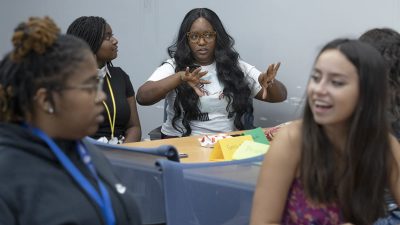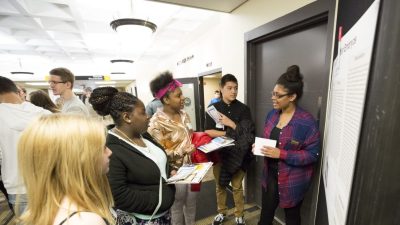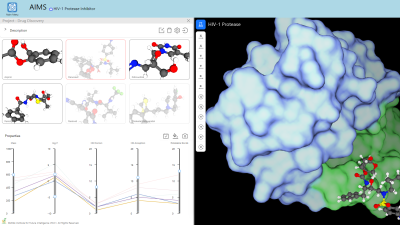The Brain Explorer Academy (BEA): An Informal Science Education Partnership
-
Abstract
Diversity is critical to innovation and the advancement of our society. Yet despite our best efforts as a nation, the United States has not been able to achieve STEM workforce diversity goals, which have been long attributed to the failure of the “academic pipeline” to recruit and retain students from underrepresented minorities (URM), a phenomenon often described as a “leaky pipeline”. Addressing this challenge will require innovative, multi- pronged interventions that concurrently address social and environmental contributors to disparities. Recent studies have shown that choosing a STEM major in college is directly influenced by academic interactions during high school, suggesting that involvement in a college-based STEM education program can enhance recruitment and retention into STEM disciplines. Programs that use a college-based academic experiences to engage underserved individuals during high school can steer their educational path to college STEM majors. URM disparities in the interest and persistence in STEM education are driven by the combination of individual, environmental and school factors. This confluence of factors suggests that changing student outcomes could benefit from a digitally-interconnected social ecological framework that goes beyond individual interests and competencies to consider the the multi-level environment within which the student learner is situated. To address the challenges in STEM diversity, we propose the Brain Explorer Academy (BEA), a comprehensive, multi-year, socio-ecological informal science education program that uses neuroscience to instill curiosity and foster interest in STEM careers. The BEA will marshal high school students in a Title 1 School through a multi-stage intervention that fosters interest in STEM, knowledge and skill development, critical thinking, scientific communication, and quantitative/analytical competencies. The proposal will We will test the hypothesis that the staged approach of the BEA, which proceeds from highly structured learning in the first year, to highly individualized mentoring in the third year, will lead to the following quantifiable outcomes: (1) Competency development: BEA will augment the science learning experience to enhance competencies in quantitative, analytical, critical thinking, team science and scientific communication skills; (2) Knowledge, Attitudes and Practices: BEA will increase interest and positively modify attitudes towards STEM disciplines and potential careers in health-related research; and (3) Workforce Capacity Building: BEA will increase the success of recruitment of students from underserved communities to college STEM majors. In addition to evaluating the program using an independent third-party evaluator , we will generate a repository of digital and material resources to be used to create a “program-in-a- box” that can be widely implemented, constantly improved and reproduced at other institutions.
Project Audience
Workforce diversity in STEM is critical to our success as a nation and our ability to address major public health challenges. However, as a nation, we have fallen short of our STEM workforce diversity goals, a failure that has been long attributed to the “leaky academic pipeline” but in reality, is related to a convergence of complex and interrelated social and environmental factors. The Brain Explorer Academy uses neuroscience and a digitally connected social-ecological framework to deploy and evaluate a multi-year, interdisciplinary training program for high school students from underrepresented minorities to stimulate their interest and persistence in STEM disciplines.






